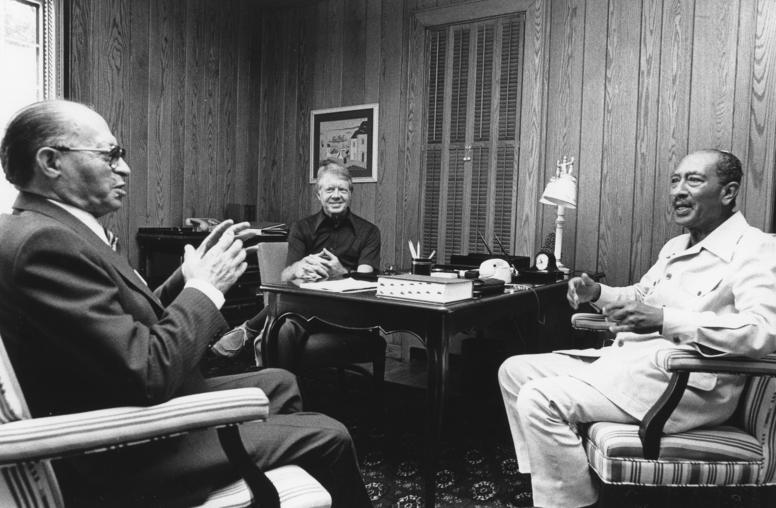In 2011, the world watched millions of Egyptians rally peacefully to force the resignation of their authoritarian president, Hosni Mubarak. “When Mubarak stepped down … we realized we actually had power,” recalled Abdallah Hendawy, a prominent activist. But, having won a victory in the streets, Egypt’s pro-democracy activists found they were ill-prepared for the negotiating table and the collaboration needed—among themselves and with Egypt’s politically powerful military—to consolidate their gains.

Hendawy, now a consultant with the U.S. Institute of Peace, recalls that pro-democracy leaders who tried to negotiate with Egypt’s generals were criticized by fellow activists for “shaking hands” with oppressors whom they had opposed weeks earlier. Ultimately, negotiations over government reforms failed, and the movement lost initiative. Egypt cycled through an elected government with too narrow a political base, and then back to military-dominated rule.
In social and political conflicts, grassroots movements use nonviolent civil resistance, while conflict resolution specialists use negotiation, in pursuit of a sustainable peace. But as in Egypt, these two groups often work with disparate mindsets. Activists sometimes see conflict mediators as elitists who risk “selling out” a just cause in their search for stability and win/win resolutions of conflict. Peacebuilders, promoting dialogue and negotiation, can label activists as rebel-rousing revolutionaries, unwilling to compromise for the greater good.
Research finds that nonviolent action and peacebuilding tactics can achieve a more just and sustainable peace when they are combined strategically. A recent conversation between scholars and activists highlighted how these two approaches can converge.

When significant power imbalances exist between conflicting parties, negotiators may find it difficult to advance a peace process because there is no incentive for the more powerful side to make concessions. In those situations, nonviolent actions like protests, strikes or boycotts can give negotiators leverage. Berlin-based scholar-activist Véronique Dudouet highlights how, in 2006, mass demonstrations for democracy, comprising grassroots activists, civil society organizations, and opposition parties (including recently disarmed Maoist insurgents), succeeded in pressuring the country’s absolute monarch, King Gyanendra, to accept negotiations and make concessions. That peaceful outcome helped ensure the end of what had been a decade of civil war.
Likewise, if nonviolent activists are invited to the negotiating table, they will be more successful if they already have built strong relationships with other peacebuilders and worked on their negotiation skills. In Nepal, USIP promoted just that evolution with a series of “Justice and Security Dialogues” to bridge gaps and build trust among activists, communities and Nepalese police. The program helped prevent violence, which would have unhinged the 2006 peace accord that formally ended the war. It also triggered reforms among Nepal’s police that have helped the country sustain the postwar peace.
American University professor Anthony Wanis-St. John cites Nepal and Egypt to highlight how negotiations can help build broad coalitions among diverse groups in society. The success of movements depends on such internal negotiations and alliance-building.
Nonviolent action and peacebuilding share a common goal: just peace through nonviolent means. Yet, when practitioners fail to communicate or even to recognize the value in integrating civil resistance and negotiation, avoidable challenges can arise. Potential allies may wind up working directly against each other. Negotiations can lack the broad base they need within a community in conflict, and thus break down at the first sign of tension.
Civil resisters can be skilled negotiators in seeking more inclusive peace agreements, and peacebuilders can strategically leverage the strengths of collective action to overcome a negotiation impasse. Both working in tandem is what can best achieve a just and sustainable peace.



